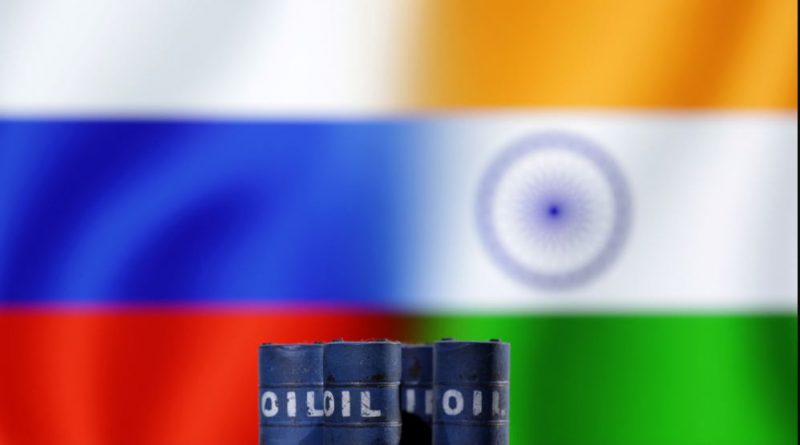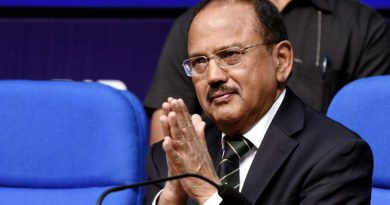Indian Refiners Take a Cautious Pause on New Russian Oil Orders Amid Sanctions Review
Hyderabad – Indian refiners are taking a measured approach following the recent U.S. sanctions on Russia’s top two crude exporters, temporarily holding back on fresh orders as they await official clarity from the government and suppliers.
While some refiners have slowed new purchases, others are turning to alternative sources on the global spot market to maintain steady energy supplies.
Despite the temporary pause, India’s commitment to energy stability remains firm. State-run Indian Oil Corporation (IOC) has stated that it will continue to purchase Russian crude as long as transactions comply with international regulations.
“Russian crude is not sanctioned. It is the entities and shipping lines that are affected,” said Anuj Jain, Finance Director of Indian Oil.
He emphasized that IOC would continue sourcing oil through non-sanctioned entities and compliant shipping arrangements, ensuring uninterrupted operations while adhering to global norms.
India has become one of the largest importers of Russian oil since 2022, when Moscow began redirecting exports eastward following the Ukraine conflict.
According to the International Energy Agency, India imported about 1.9 million barrels per day of Russian crude during the first nine months of 2025 — nearly 40% of Russia’s total seaborne exports.
This shift has helped India secure competitively priced oil and maintain a diverse energy basket during volatile global market conditions.
In recent days, several refiners, including Indian Oil, Reliance Industries, and Mangalore Refinery and Petrochemicals Ltd (MRPL), have taken proactive steps to ensure continuity in operations.
Indian Oil has floated a new tender for compliant oil supplies, while Reliance has increased purchases from the spot market to make up for any potential shortfall.
MRPL has also issued a tender to buy between 1 million and 2 million barrels of crude to maintain its refining operations.
Similarly, Bharat Petroleum Corporation Ltd (BPCL) plans to issue a spot tender within the next week to secure December-loading cargoes.
According to industry sources, BPCL will continue to buy Russian oil only from non-sanctioned entities while exploring alternative sources for a portion of its supply.
The company typically purchases around 2 million metric tons of oil from spot markets each month, most of which is Russian. For November, BPCL is fully covered, and the company is now working to secure adequate volumes for December.
Officials have indicated that the most likely replacements for Russian crude in the short term are Iraq’s Basrah Heavy and Basrah Medium grades, as well as U.S. West Texas Intermediate (WTI) crude.
However, WTI currently costs about $3 to $3.50 per barrel more than competing grades, making price optimization a key focus for refiners.
While the European Union, the UK, and the United States have introduced successive rounds of sanctions targeting Russian energy companies such as Lukoil and Rosneft, Indian refiners are treading carefully to ensure compliance without compromising energy security.
The Indian government has maintained a balanced stance, reiterating that purchases will continue from sources not under direct sanctions.
Industry experts note that Indian refiners’ cautious strategy demonstrates prudence and adaptability in navigating a complex geopolitical and economic environment.
Refiners are closely coordinating with suppliers to ensure transactions remain within the boundaries of international law while securing the volumes needed to sustain industrial activity and fuel demand.
One refinery executive said his company had cancelled some previously booked cargoes linked to sanctioned entities but was exploring fresh deals with approved traders.
Another source confirmed that refiners are waiting for further guidance from both domestic authorities and global trading partners before finalizing additional Russian shipments.
Overall, India’s approach reflects a balanced energy strategy — one that prioritizes compliance, economic stability, and diversification.
While the recent sanctions have temporarily slowed procurement, Indian refiners are well-positioned to adjust through global sourcing and strategic planning.
As energy markets continue to shift, India’s refiners remain focused on ensuring uninterrupted supply chains and maintaining affordable fuel prices for domestic consumers.
The ongoing evaluation of new trade routes and partnerships underscores India’s growing role as a key player in shaping global oil dynamics, demonstrating both resilience and pragmatism in uncertain times.


